The Duke of Burgundy is not your typical lesbian romance—it’s a surreal, dreamlike study of love, desire, and power dynamics. Directed by Peter Strickland, the film explores the relationship between Evelyn and Cynthia, two women whose intimacy is shaped by elaborate role-playing and shifting boundaries of control. Set in an all-female world where men are absent, the story unfolds in a timeless, gothic-like setting, filled with symbolism, repetition, and haunting beauty.
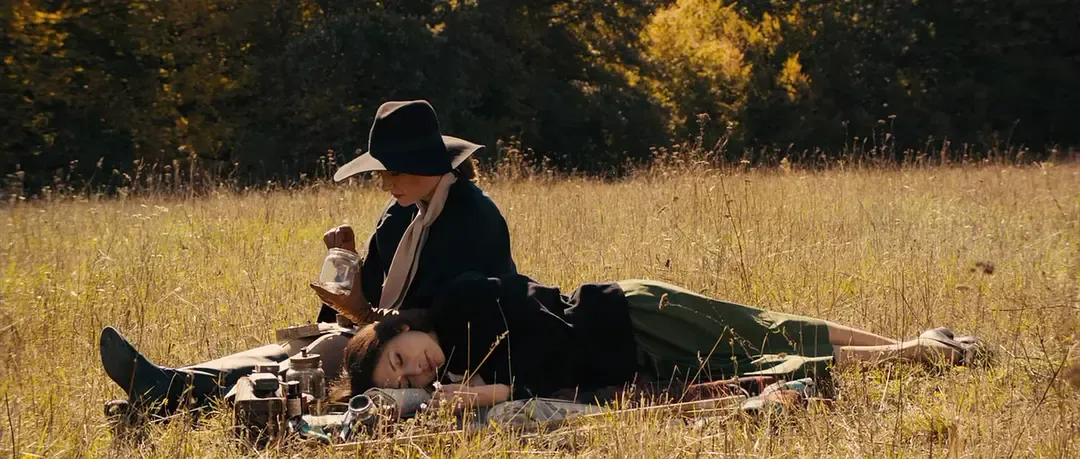
Evelyn (Chiara D’Anna) and Cynthia (Sidse Babett Knudsen) are lovers who indulge in ritualistic role-play: Evelyn acts as a submissive maid, while Cynthia plays the cold, commanding mistress. On the surface, it appears Cynthia holds the power—but soon we learn that Evelyn is the one scripting the scenarios, dictating every line, gesture, and costume.
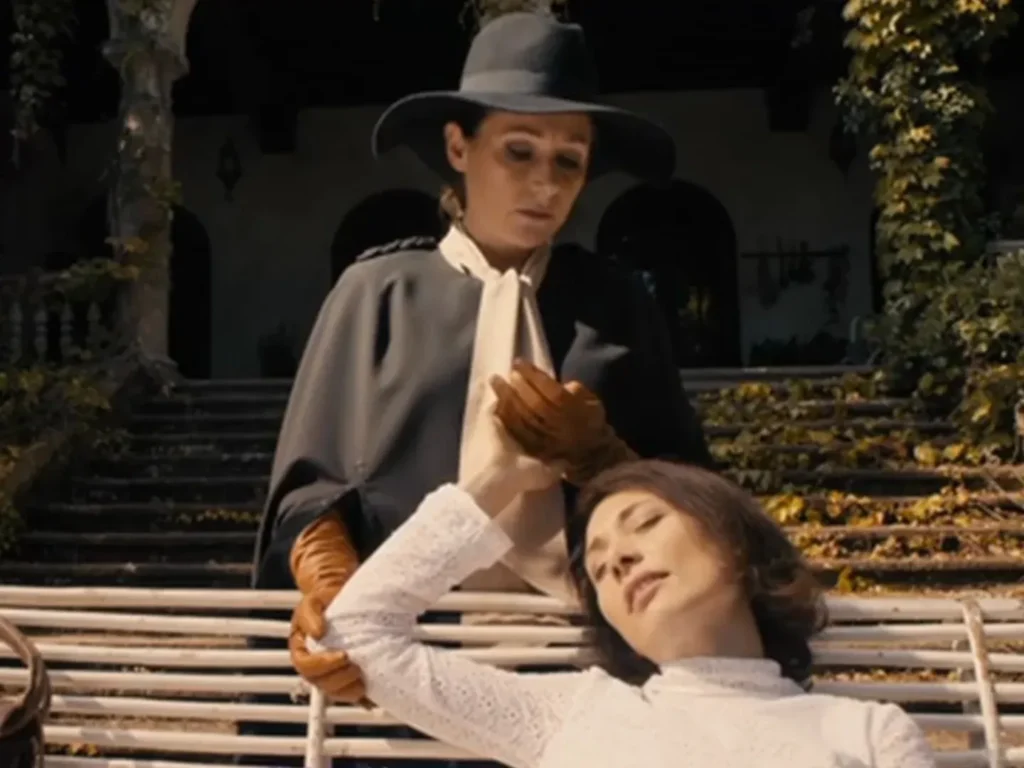
As days repeat with near-identical routines, cracks begin to show. Cynthia grows weary of Evelyn’s constant demands, longing instead for simple affection. Evelyn, however, remains captivated by the heightened drama of their games. The cycle of dominance and submission wavers, exposing the imbalance beneath their love.
In the end, the film resists resolution—suggesting that their relationship, like the butterflies Cynthia studies, is fragile, cyclical, and bound by desire as much as by pain.
The Duke of Burgundy Cast
Charactor
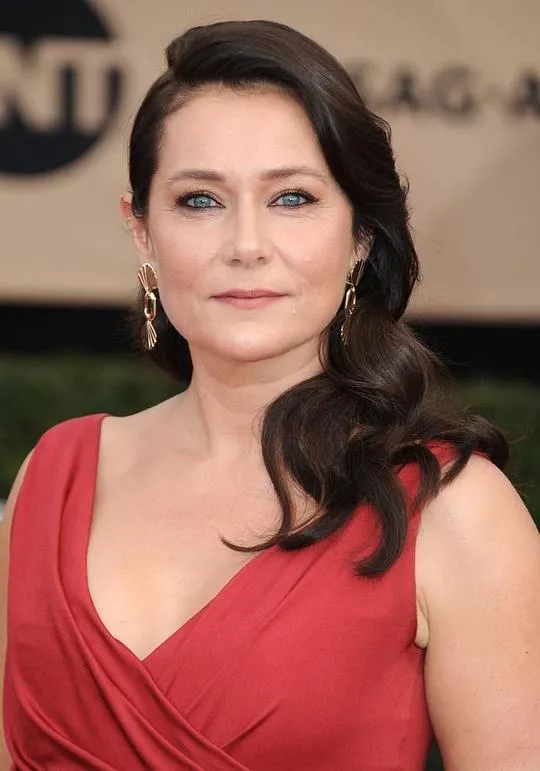
A professor and entomologist who appears commanding but longs for tenderness.
Sidse Babett Knudsen
Sidse Babett Knudsen (Borgen, Westworld) brings both authority and fragility, grounding the film’s surreal atmosphere with a deeply human performance.
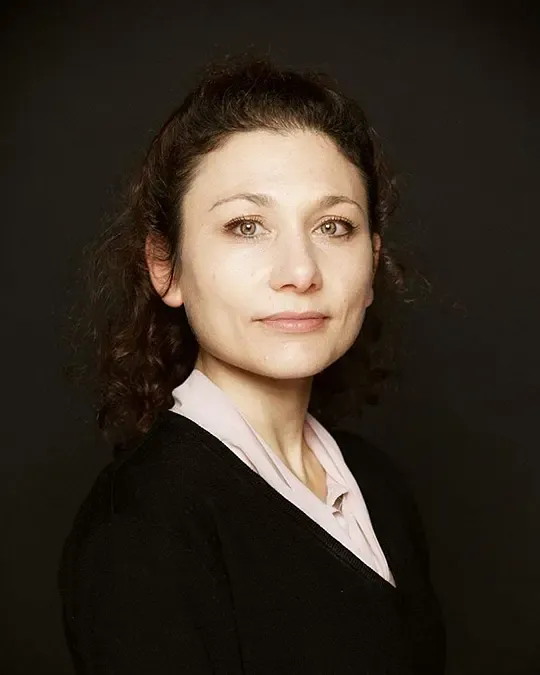
A devoted lover who craves intensity, scripting elaborate scenarios to fulfill her desires.
Chiara D’Anna
Chiara D’Anna (Berberian Sound Studio) balances naivety with quiet control, shaping Evelyn into more than a passive role—she is both vulnerable and manipulative.
Director
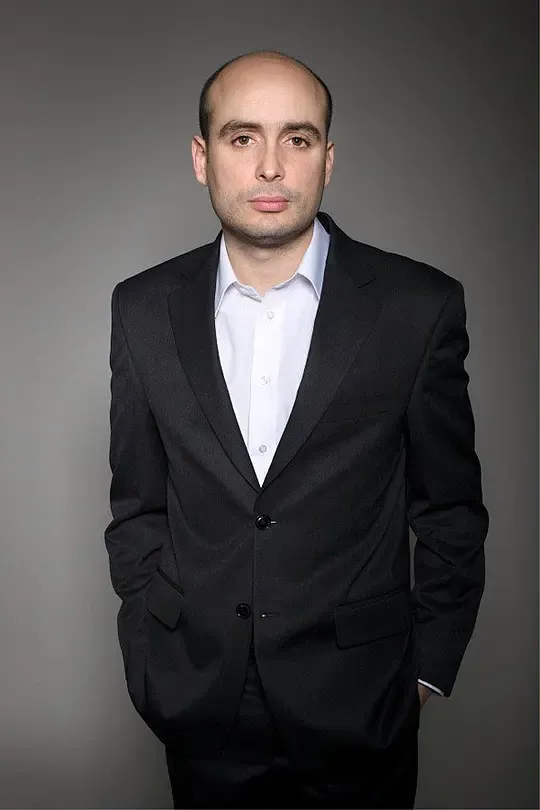
Peter Strickland
Peter Strickland is known for his atmospheric and experimental style (Berberian Sound Studio, Flux Gourmet). With The Duke of Burgundy, he crafted a film that uses sound design, repetition, and heightened aesthetics to explore intimacy without relying on explicitness—proving that suggestion can be more powerful than exposure.
BEST SCENES
📍 Opening routine: Evelyn arriving late as the maid, Cynthia scolding her—their “performance” revealed to be a carefully scripted ritual.
📍 Butterfly research sequences: scientific precision blending with metaphor, as insects mirror the fragility of love and obsession.
📍 Final confrontation: Cynthia breaks down, overwhelmed by Evelyn’s demands, shifting the power dynamic once again.
The Duke of Burgundy Review
Review
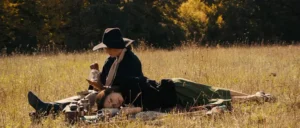
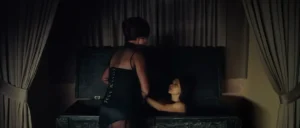
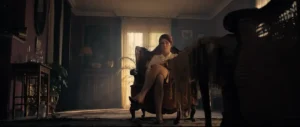
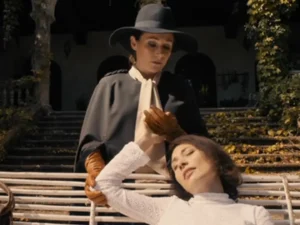
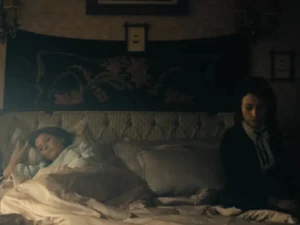
⭐ Story (4/5)
Instead of a conventional plot, the film unfolds like a chamber piece. It examines love through repetition, ritual, and symbolism. While some may find the pacing slow, it rewards patient viewers with layered meaning.
⭐ Acting (4.5/5)
Sidse Babett Knudsen brings emotional depth as Cynthia, torn between control and vulnerability. Chiara D’Anna portrays Evelyn with an unsettling mix of innocence and quiet dominance. Together, their performances sustain the film’s delicate tension.
⭐ Chemistry (4.5/5)
Their connection is intense, not through explicit scenes but through glances, tones of voice, and ritualistic gestures. The chemistry feels both suffocating and tender, reflecting the paradox of their bond.
⭐ Production (5/5)
Strickland’s direction is masterful. The ornate costumes, lush interiors, and magnified sounds of everyday objects (soap bubbles, fabrics, insects) create an immersive sensory world. The absence of men heightens the film’s surreal, hermetic quality.
⭐ Ending (4/5)
The ending offers no neat closure—just the suggestion that their cycle of desire and frustration continues. It’s haunting, ambiguous, and true to the film’s experimental spirit.
💬 My Take
The Duke of Burgundy is not an easy film—it’s poetic, unsettling, and sometimes disorienting. But that’s also its strength. It portrays lesbian love not as sweetness, but as a complex negotiation of power, desire, and compromise.
For me, the most fascinating part was its refusal to place one woman firmly above the other. Just when you think Evelyn is submissive, she controls the script; just when Cynthia appears dominant, she reveals her vulnerability.
It’s sensual without being explicit, elegant without being cold—a rare work of art-house lesbian cinema that lingers long after it ends.
The Duke of Burgundy Information
🎖 Awards & Recognition
Toronto International Film Festival (2014) – Official Selection
British Independent Film Awards – Best Actress (Nomination) – Sidse Babett Knudsen
Widely praised by critics as one of the most original lesbian-themed films of the decade.
